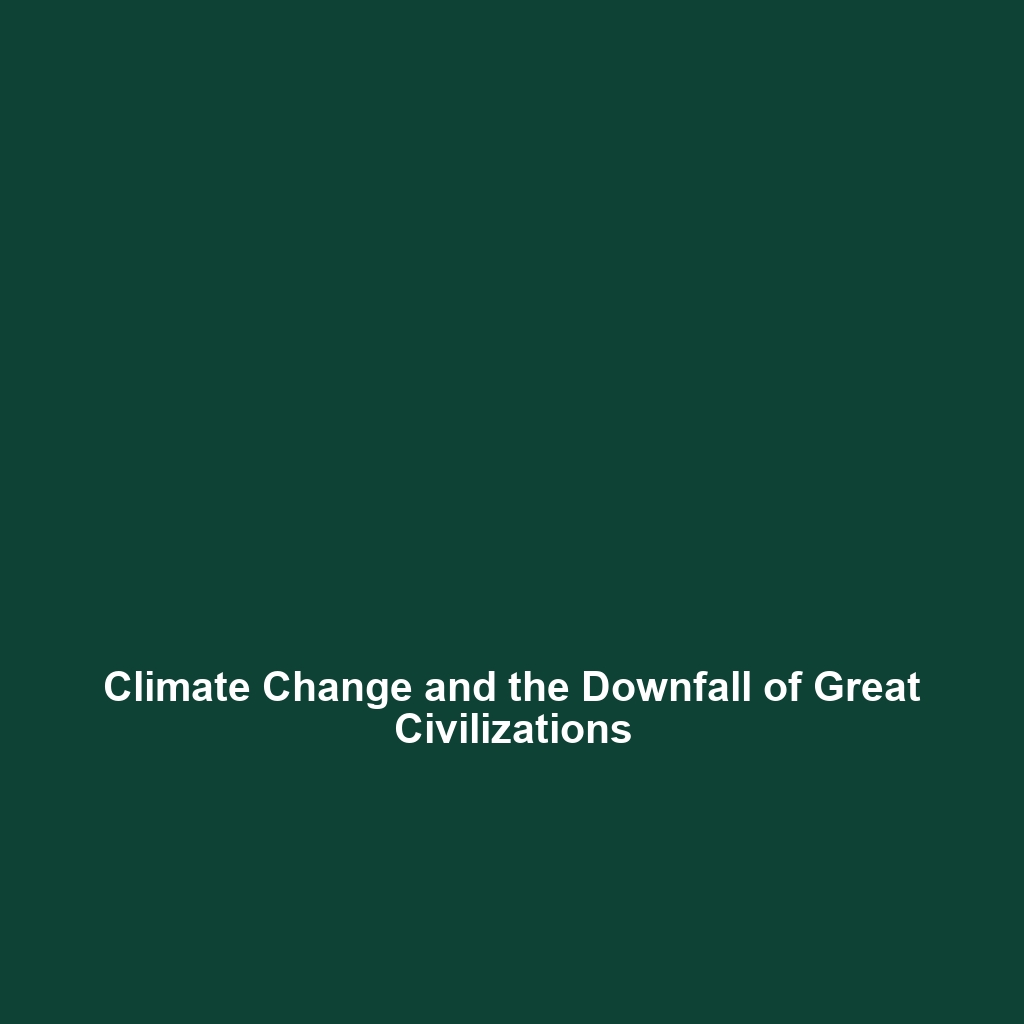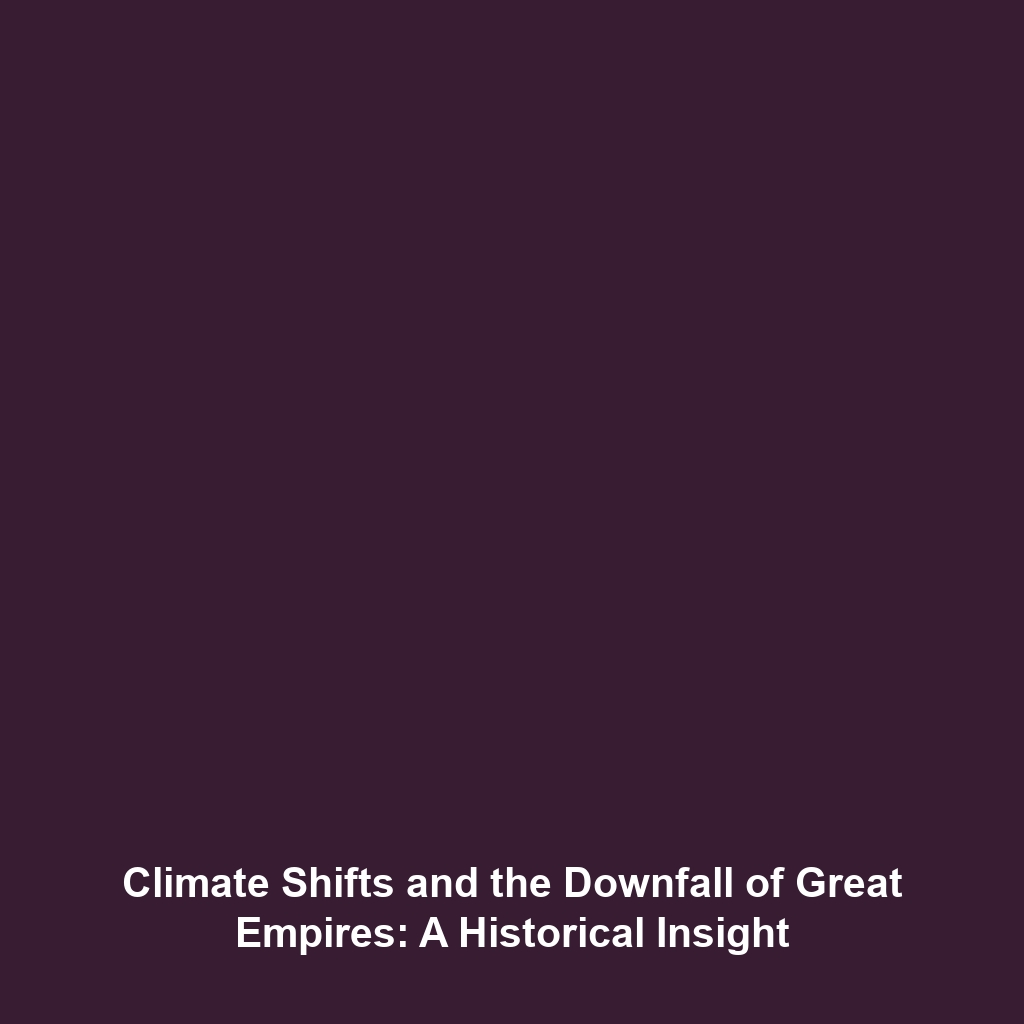Reconstructing Climate Conditions: The Role of Historical Records
Historical records play a vital role in our understanding of climate history. By analyzing written documents such as ship logs and agricultural reports, scientists can reconstruct climate conditions over the past few centuries. This process not only enhances our knowledge of past climates but also provides valuable insights into present and future climate patterns. In this article, we delve into the significance of these records in the broader context of climate history, their applications, challenges, and the future of research in this field.
Key Concepts in Historical Climate Reconstruction
Understanding climate history involves several key concepts essential to reconstructing past climate conditions:
- Primary Sources: Historical written records, particularly ship logs and agricultural reports, provide firsthand accounts of weather conditions, crop yields, and natural events over time.
- Data Extraction: Scientists employ techniques such as text analysis and natural language processing to extract relevant climate data from these records.
- Calibration and Validation: Historical data must be calibrated with modern measurements to ensure accuracy and reliability.
These concepts highlight how written records serve as crucial tools within the study of climate history, enabling researchers to build a more comprehensive understanding of climatic changes.
Applications and Real-World Uses
The application of historical records has substantial implications for climate science and various sectors, including:
- Agriculture: Understanding historical climate patterns aids farmers in making informed decisions about crop selection and planting schedules.
- Urban Planning: Historical climate data helps cities prepare for extreme weather events by identifying trends and vulnerabilities.
- Climate Policy: Policymakers use historical climate data to develop strategies for mitigation and adaptation in the face of climate change.
These applications demonstrate how historical records are instrumental in addressing contemporary challenges associated with climate history.
Current Challenges in Utilizing Historical Records
Despite their significance, there are several challenges associated with the study and application of historical records in climate history:
- Data Completeness: Many records may be missing or incomplete, leading to potential bias in climate reconstructions.
- Standardization: Variability in record-keeping practices across regions and time periods complicates data comparison.
- Interpretation Issues: Differing interpretations of historical events can result in conflicting climate reconstructions.
Addressing these challenges is essential for enhancing the accuracy of climate reconstructions based on historical records.
Future Research and Innovations
Looking ahead, research focused on historical records is expected to yield innovative approaches and breakthroughs:
- Advanced Analytical Techniques: The use of artificial intelligence and machine learning will improve data extraction from historical records.
- Interdisciplinary Collaborations: Scholars from diverse fields are increasingly collaborating to create a holistic view of climate history.
- Enhanced Digital Archives: Improving access to digital archives will facilitate broader analysis and research opportunities.
These advancements herald a promising future for the study of climate history using written records.
Conclusion
In summary, the reconstruction of climate conditions through historical records such as ship logs and agricultural reports provides invaluable insights into our climate history. By recognizing the significance of these records, we can better understand past climate variations and their implications for the future. As research continues to evolve, engaging with historical data will be crucial for developing effective climate response strategies. For further reading on climate history and its implications, explore our articles on agricultural impacts and climate policy development.

